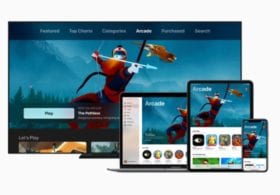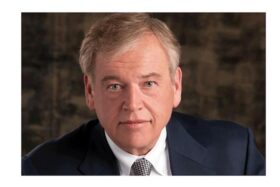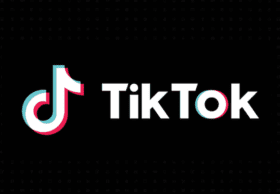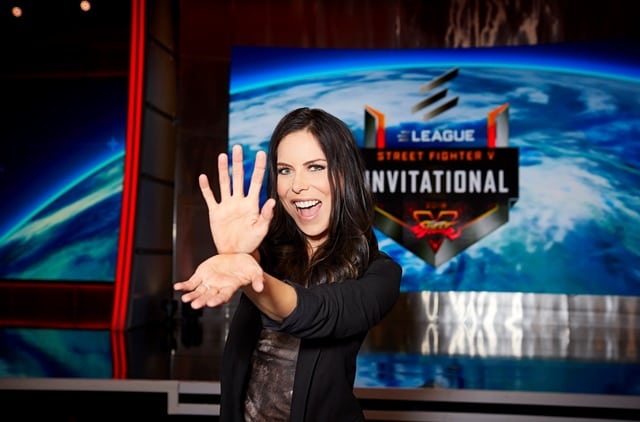A new report from Newzoo projects that over 14.1 million hours of major console esports events have been viewed on Twitch since the beginning of 2018, with the overall tally swelling to 20 million with the addition of YouTube. Twitch’s number alone is already up nearly 96% over the same period in 2017, spanning 46 events so far this year. Overall, console esports accounted for 4.5% of all viewership hours on Twitch and YouTube Gaming combined.
Meanwhile, the 2018 Mid-Season Invitational Grand Final shattered records as competition for the League of Legends event drew all-time esports viewership highs. According to Esports Charts, the 2018 MSI Grand Final ranked as the most watched esports event in history with over 127 million viewers tuning into the action with over 126 million of the viewers tuning in from China, accounting for 9% of the country’s population. That said, some pundits are now claiming that the viewing numbers were boosted due to bots being used on the large streaming platforms, although that hasn’t been confirmed.
Activision announced that the community reveal event for the new Call of Duty title ranked as the most the “biggest ever” for a CoD game reveal. The event bust previous viewing records, according to a blog post from the company, writing, “The reveal livestream broke franchise records, including the most day one views as well as the highest concurrent viewers, while also blanketing social media as the #1 trending topic on Twitter globally during the broadcast. Views from the reveal event have already surpassed 80 million, including the livestream, official trailers and content creator videos.”
ESTARZ announced a partnership with Immortals to produce Smashed, an original reality esports series that will feature Jason “ANTi” Bates, who is the team’s top-ranked Smash Bros. player. In each episode, viewers will follow Bates in the competitive Smash Bros. scene. “What you don’t see is the everyday life of these young and up-and-coming esports stars as they work their way up the rankings and into the public eye,” says Marco Mereu, CEO of ESTARZ. “We are excited to show viewers not only the competitive elements but the personal side of esports. Jason represents a great example of a modern day esports athlete evolved and we are excited to tell his story.”
Play2Live announced that it would be hosting the first-ever Hearthstone contest to be powered by blockchain technology. Eight players have been invited for the tournament with the grand final on May 25. All content will be carried on P2L.TV.
Blizzard Entertainment announced a licensing agreement with Hasbro to become the global master toy licensee for the Overwatch franchise. Hasbro will launch a slate of play experiences including NERF products, games and more, based on the growing Overwatch universe and its characters. “We are thrilled to announce this partnership with Blizzard for the Overwatch franchise,” said Samantha Lomow, senior vice president, Hasbro. “The roster of bold, diverse characters, and a passionate following of more than 40 million players have inspired our teams to create an amazing product line that will not only appeal to the passionate Overwatch fan base, but also attract new fans into the Overwatch universe.”
Meanwhile, Licensing Expo 2018 saw the Activision Blizzard Consumer Products Group detail more partnerships. Highlights include new partners for Call of Duty, Crash Bandicoot, Spyro, Destiny, Overwatch, World of Warcraft and Hearthstone. “Since debuting at last year’s Licensing Expo, we’ve begun to successfully realize our vision of offering more value and more opportunities for our global licensing and retail partners by leveraging the blockbuster franchises that Activision and Blizzard have created and expanded over many years of dedicated development,” said Tim Kilpin, CEO and president, Activision Blizzard Consumer Products Group. “For our hundreds of millions of players around the world, we’re working hard to build lasting global franchises that they can connect with across game platforms and through esports and vibrant transmedia story content. We are well positioned to continue playing a leading role in shaping the future of entertainment.”
Speaking of licensing, Tinderbox is teaming up with ESL for licensing in both North America and Europe, according to Esports Insider. ““Esports have officially emerged into the mainstream and ESL has led the way,” said Dan Amos, Head of New Media at Tinderbox. “With exponential growth in attendance, viewership and prize pools, ESL has become the premiere hosting platform for developers and the most prestigious league for teams and players. Tinderbox is proud to join the esports revolution and we are excited to create a truly best-in-class consumer products program that further connects fans to the non-stop action that ESL provides.”
Big news for Team Liquid parent company aXiomatic, which reportedly raised $25 million in a Series B funding round led by Golden State Warriors executive board member Bruce Karsh. ESPN reports that the round includes additional investment from existing aXiomatic board members, including Washington Wizards owner Ted Leonsis, Warriors co-owner Peter Guber and Tampa Bay Lightning owner Jeff Vinik. Chicago-based firm Vernon & Park Capital also invested into aXiomatic with Karsh.
Electronic Arts acquired the cloud gaming technology assets and personnel of a subsidiary of GameFly. The acquired technology and team members deepen EA’s capabilities and expertise in cloud gaming, and enable the company to continue exploring new ways for players to access and experience games from any device, according to the release.
Sony said that the PlayStation 5 is at least three years away. According to the Wall Street Journal, the company wants to spend three more years readying its next videogame move and will instead focus on its PlayStation Plus service.
POWER PLAYERS- Michael Prindiville
Team Dignitas’ newly-appointed CEO Michael Prindiville is hitting the position full throttle, with the team announcing the addition of the world’s top-ranked Rocket League team to its roster, signing players who competed as Gale Force, a European-based squad that will now compete under the Team Dignitas banner at the RLCS Season 5 World Finals from June 8-10 in London. Since being announced as CEO, where he joined following five years with NBC Sports Group, Prindiville also noted in various interview that he is also considering a brand update to the team, applying for Riot Games’ European League Championship Series and a potential move. Cynopsis asked Prindiville about his move and plans for the team.
Prindiville on taking the job: The ability to reinvigorate a storied esports org back to the pinnacle, and to do so in a new, innovative way in conjunction with the assets of Harris Blitzer Sports and Entertainment was an incredible opportunity to work with and learn from some of the most innovative executives in the industry (led by HBSE CEO Scott O’Neil) on one of esports most iconic and historic franchises.
On Team Dignitas: No other org has the combination of a storied history, global fanbase and unparalleled opportunity to shock the world. The franchise’s founder, Michael “ODEE” O’Dell, has been a luminary in the esports community since its inception – having at one time been a player, coach, manager, General Manager, President and Owner. This position allows me to capitalize and amplify Team Dignitas’ extraordinary brand position; our work will make esports history.
On goals: In short: Win. Entertain. We do this for the fans – and we have the most loyal fan community in esports. Team Dignitas has a storied history within esports. Founded in 2003, the org has won 26 world championships across 16 titles. We’re looking to take that history and build on it through three main verticals that we’ll look to ramp up over the next 6-12 months – specifically with regard to our (1) brand, our (2) community and (3) fan engagement and our content. We have a real opportunity here to marry our brand history with fresh perspective.
On franchises: We will look at all opportunities in the space to determine if they make sense for our brand, business and vision – knowing that many more, potentially bigger opportunities, are always right around the corner. After all, this is esports. We’re generally interested in leagues that treat esports as a business rather than marketing, which means recognizing that without the players and organizations, there is no league. This means working with top orgs to build the appropriate infrastructure, compelling content, robust monetization plans and long term security.
On his takeaway from helping NBC launch esports: Esports is not merely a sport or form of entertainment – it is the blueprint for modern day media, engagement and consumption.
Gfinity appointed Garry Cook as Executive Chairman of the company. Cook replaces Tony Collyer, who will step down from the Board after four years. Cook previously served as President and General Manager for Nike’s Jordan Brand, was the CEO of the Manchester City Football Club, and most recently held the Chief Global Brand Officer position for the Ultimate Fighting Championship.
Magic Gaming named Gabriel Causse as its partnership development manager. Causse will be charged with locoing new partners for the team, coordinating with players and staff to produce content, and boosting the team’s social media following.
As player contracts evolve with the growth of esports, Dan Ciccone, SVP, Managing Director of REV/XP, offers his thoughts on pro player contracts and pro player rights. For the full commentary/call to action, visit http://www.cynopsis.com/cynsiders/.
Many player/org issues that have arisen are primarily due to the fact that the professional esports scene has evolved more rapidly over the past 24 months than it has in the past 10 years. While it is great to see esports now at the forefront of the entertainment industry, it is coming at a rapid pace and with a price. The price is more pressure on orgs to generate revenue for investors and to be accepted by publishers to compete in franchised leagues like OWL and the LCS. So while we have seen much “outside investment” in esports over the last 18 months, many of the orgs are struggling to keep up and evolve with the financial demands of professional esports without updating/altering player contracts to coincide with these demands. This is due to a number of reasons:
- While many games have become more organized and offer more structure with new schedules and rules, many leagues now require orgs to spend millions of dollars to be recognized by the publishers for official slots to compete – as an example, a few years ago, any team on the planet had a shot at becoming champs in the LCS. Now, it’s going to set you back at least $20 million for a slot in the league.
- Traditional sports franchises are buying existing esports orgs and realizing that their traditional sports business model does not complement, and cannot replace, the inherent structural differences between the operations of an esports organization and a traditional pro sports team.
- VC companies are buying orgs – people who know little to nothing about esports are buying into the space as an “investment” and treating the space like a commodity that will be flipped in a short amount of time for a nice profit. There is a sense that because esports is inherently digital, there are all of these untapped revenue streams and that’s just not the case.














